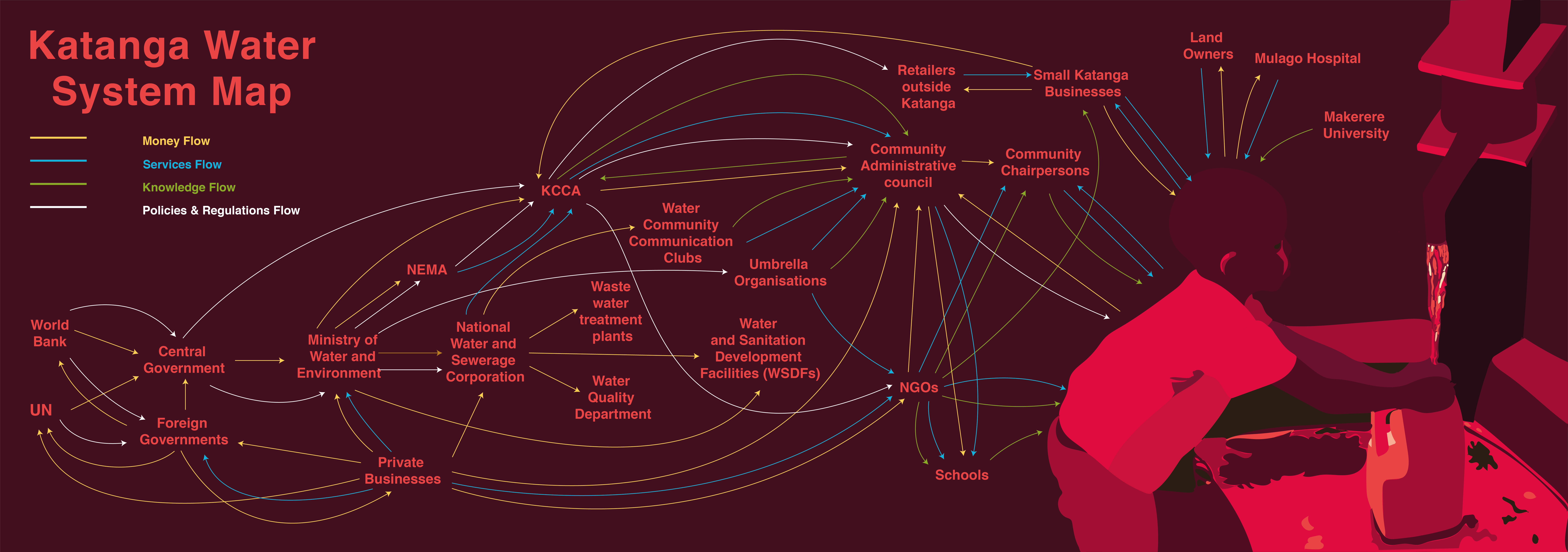A critical attribute from the synthesis of our learnings from the trip, workshop and interviews with the community, and the visions that resulted from the engagement was a system map of our project context. The system map was created to assimilate our observations from a perspective in which water interacts with a family in Katanga through a system of actors. The connections between the actors highlight the flows related to knowledge, services, policies and regulations and financial transactions.
Hover over the system map to zoom in 
The main findings informed by our research and this system map are:
- Challenges around WASH outcomes in an informal settlement like Katanga are complex and involve layered groups of stakeholders. Hence, implementation of new solutions requires careful coordination and collaboration.
- Impacts of water resources and solutions go beyond WASH aspects, as they can have a strong effect on the economic, mental and social wellbeing of the community, individuals and local businesses.
- In addition to improved water solutions, the residents of Katanga aspire for improved private spaces, whether it was related to sanitation or living space overall.
For making Katanga thrive in terms of water, it is necessary to improve the accessibility of safe water supply in the region. Drainage and rainwater should be managed in a sustainable manner. The burden of household water management should be lessened. Management of waste, including sanitation, should become more rigid. This vision combined with the Emu ku’emu concept about sustainable living could significantly improve the physical, social, mental and economic wellbeing of families living in Katanga.